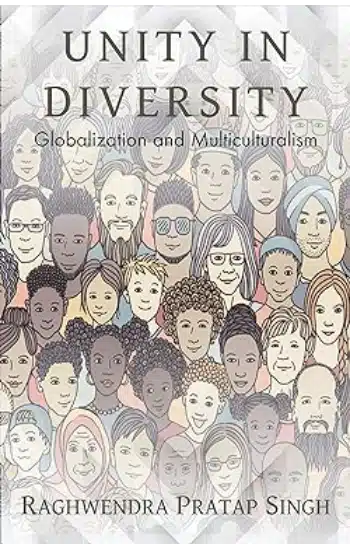
Save: 20%
Unity in Diversity : Globalization and Multiculturalism
Publisher:
| Author:
| Language:
| Format:
Publisher:
Author:
Language:
Format:
₹850 ₹680
Save: 20%
In stock
Ships within:
In stock
ISBN:
Page Extent:
The book presents the notion of unity in diversity in the context of globalization and multiculturalism. Philosophically speaking, the concepts of unity and diversity have been contested in classical and modern theories; for instance, Plato’s idea of harmony and goodness, Aristotle’s phronesis or practical wisdom (teleology), Kant’s categorical imperative (deontology), and Mill’s utilitarianism (consequentialism) on the one hand and puruœÀrthas divided into abhyudaya and niÍœreyas, etc. on the other. These theories give rise to the concept of diversity but jointly somehow they emerge as unity in diversity.
In the era of globalization and multiculturalism, teleology, deontology, consequentialism and so on have been described, critiqued and even appreciated and appropriated from pluralistic perspective. With globalization and multiculturalism, human life is affected not only insofar as market is concerned, but also the ethnical, cultural and linguistic identities are equally affected. However, unlike globalization, multiculturalism endorses the role of the State in protecting and safeguarding the rights of diverse cultural groups, values and practices, marriage and settlements, property and inheritance, etc. so that members of each cultural community should become the valid participants in the civil and democratic life in the globalized world.
The perspectives of, and the conflict between individual needs and rights, and group needs and rights, have been conceptualized under liberalism and communitarianism. It is proposed to be achieved by developing cultural transformations in the era of globalization, thus creating reasonable exclusion on broader values. The effort is to allow these values to inform and reinforce each other for the possible foundations of multiculturalism, specially cosmopolitanism in the globalized world.
The book presents the notion of unity in diversity in the context of globalization and multiculturalism. Philosophically speaking, the concepts of unity and diversity have been contested in classical and modern theories; for instance, Plato’s idea of harmony and goodness, Aristotle’s phronesis or practical wisdom (teleology), Kant’s categorical imperative (deontology), and Mill’s utilitarianism (consequentialism) on the one hand and puruœÀrthas divided into abhyudaya and niÍœreyas, etc. on the other. These theories give rise to the concept of diversity but jointly somehow they emerge as unity in diversity.
In the era of globalization and multiculturalism, teleology, deontology, consequentialism and so on have been described, critiqued and even appreciated and appropriated from pluralistic perspective. With globalization and multiculturalism, human life is affected not only insofar as market is concerned, but also the ethnical, cultural and linguistic identities are equally affected. However, unlike globalization, multiculturalism endorses the role of the State in protecting and safeguarding the rights of diverse cultural groups, values and practices, marriage and settlements, property and inheritance, etc. so that members of each cultural community should become the valid participants in the civil and democratic life in the globalized world.
The perspectives of, and the conflict between individual needs and rights, and group needs and rights, have been conceptualized under liberalism and communitarianism. It is proposed to be achieved by developing cultural transformations in the era of globalization, thus creating reasonable exclusion on broader values. The effort is to allow these values to inform and reinforce each other for the possible foundations of multiculturalism, specially cosmopolitanism in the globalized world.
About Author
Reviews
There are no reviews yet.
Related products
Health and Nutrition: Issues and Initiatives in Rural India
Save: 25%
It Starts With Veg: 100 Seasonal Suppers And Sides
Save: 25%
RELATED PRODUCTS
20×20: Twenty Architects x Twenty Iconic Homes of India
Save: 30%
Health and Nutrition: Issues and Initiatives in Rural India
Save: 25%
Politics Of Design : A Global Manual For Visual Communication
Save: 0%



Reviews
There are no reviews yet.